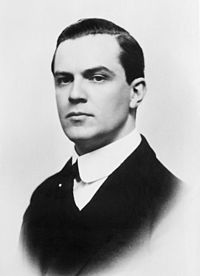Napoléon Roussel: How Not to Preach

Procop
In his chapter dedicated to Procop, Napoléon Roussel criticises the authoritarian preacher who limits himself to making assertions without providing the reasons for his statements. Procop invokes the example of Jesus of whom it is said that he spoke with authority. However, a closer look reveals that Jesus often cited the Scriptures or appealed to the conscience of his audience. More importantly, the authority of Jesus appears to flow from his person and life:
“… all his person, all his life and, consequently, all his discourses have a grandeur, a strength, a divinity that commands respect and trust. Jesus did not claim this authority, his audience had to acknowledge it. It was a spontaneous reaction to their experience of his saintliness.”
Roussel draws the conclusion that “we will have authority over our audience only in proportion to the saintliness of our lives”.
The need for the preacher to reason should not be understood as a request for syllogisms; there are reasons that address more particularly the heart and the conscience, such as personal experience, the inner life of the preacher, his desires and emotions, … These also constitute, to some extent, assertions, but they establish an inner link with the audience:
“… when you have attuned me to your being, then I am ready to let myself draw towards your conclusions; it is a string which, once it is put in motion in your heart, will make the same string vibrate in my heart.”
But in order to obtain that effect, the preacher has to open up and engage with his audience.
Roussel deplores that many sermons lack life, “… that invisible action that is discernible to the soul, this warmth that communicates [… and] introduces itself into the most deficient discourses and makes the audience accept them with sympathy.” He considers that this lack of life in the pulpit originates from the lack of godliness in the personal life of the preacher: “As is the man, such is the preacher.” (*)
Russel deduces that the preacher must be converted. This does not mean, however, that a man whose godliness is deficient must remain silent:
“… what I would like to suggest is that we be completely sincere in the pulpit until our godliness develops. I mean, not only sincere when we preach what we believe, but also sincere in the choice of our reasons, sincere in the expression of our feelings, sincere in the tone of our voice, in the gesture of our hand, well, sincere within the full scope of that word.”
(*) The French original (“Tel homme, tel prédicateur.”) is reminiscent of Adolphe Monod’s sermon title “Tel enfant, tel homme.” (“As is the child, such is the man.”).
Back to chapter 5 (Callistus) - Go to chapter 7 (Ovid)
Back to the index |